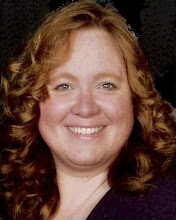Leavitt warns of pandemic, foresees health care reform
By James Thalman
Deseret News
Published: January 27, 2009
Ready or not, one day soon there will be another pandemic. Like it or not, health-care system reform is really going to happen this time. Believe it or not, the one person who is gaining a new appreciation for President George W. Bush is President Barack Obama.
Those were among several assertions made to the Deseret News editorial board Monday by Michael O. Leavitt, former Utah governor, former head of the Environmental Protection Agency and, most recently, former U.S. Secretary of Health and Human Services.
Asked to assess the legacy of Bush, Leavitt said being critical is not his place as a Cabinet member nor is it his desire as a friend. The only things that can be said for certain is that it's too soon to say.
During a recent visit to the Oval Office, Leavitt recalled, Bush pointed to the portrait of George Washington and said if historians are still arguing the legacy of the first president, arguing over the legacy of the 43rd is a given.
Leavitt, who said he fully shares in the nationwide hope for the new president, said he believes Iraq and Afghanistan "have a very good chance of ending up with functioning democratic governments. Those are very important world-changing results."
Seeing the presidency up close also gave Leavitt a new perspective on how the country views the position — "as both an object for the manifestation of our hopes and our fears." The Bush administration didn't do things perfectly, "but no administration does." He said circumstances, such as Hurricane Katrina, never allowed the president an opportunity to rally around optimism.
"There was never a time when we all set aside our divisions and moved forward," he said.
Leavitt also got an up-close perspective of the world outside Washington, from seven weeks overseeing emergency medical services for Katrina victims, to visits to China to establish FDA standards for food and products manufactured there, to the efforts of the administration to contain the AIDS epidemic in Africa. The latter, he said, is one of Bush's mostly unsung and significant achievements in improving the public health.
The position also gave him a new vantage point on health care, particularly the need for reforming it.
He envisions a time when patients can look up the cost, outcome and quality of medications, procedures and doctors from a home computer.
He also has a clear idea of what health-care reform is and likes to describe it by what it is not: the 47 million Americans who don't have medical insurance. He calls that "an administrative problem that gets all the attention but one we can fix."
One thing that must change is spending 16.5 percent of the gross national product on health care, "which rewards based on procedures, successful or not, and for treating sickness rather than keeping people well."
The system is a network of independent "silos" that is very specialized and very expensive, but not very good compared to countries that spend a fraction of their national product on medicine.
"The solution isn't to continue to keep doing what we did in the past," he said. "The role of government needs to be worked out. Is it to own the system or organize the system?"
Leavitt said he foresees three possible outcomes for making comprehensive changes: incremental steps with expansions of health-care insurance for children and by expanding Medicare for seniors, the Big Bang change with details to be worked out later, the Big Bang carefully done.
"Health care is a big part of the stimulus — $100 billion — and a lot of it is for improving health care information technology, which is wonderful," he said. "The big question is if this will be a pay-as-you-go effort. If they stick to a pay/go principle, the changes are more likely to be incremental."
Health care is absolutely going to be changed, he said, noting that issue is finally ripe in the public's mind, a factor that destined previous efforts to little more than nice tries.
He is also sure that a pandemic is a certainty, noting the three in the 20th century and the 10 the past 300 years. He pointed to his efforts to make the public aware of the avian flu threat, which he said were bolstered substantially by being mentioned on "The Tonight Show With Jay Leno" three nights running in 2002. He said there have been improvements in public health and in scientific preparedness, and the U.S. vaccine industry has been retooled under his watch.
© 2009 Deseret News Publishing Company | All rights reserved
http://deseretnews.com/article/1,5143,705280584,00.html?linkTrack=Email-GME
Tuesday, January 27, 2009
Subscribe to:
Post Comments (Atom)




No comments:
Post a Comment